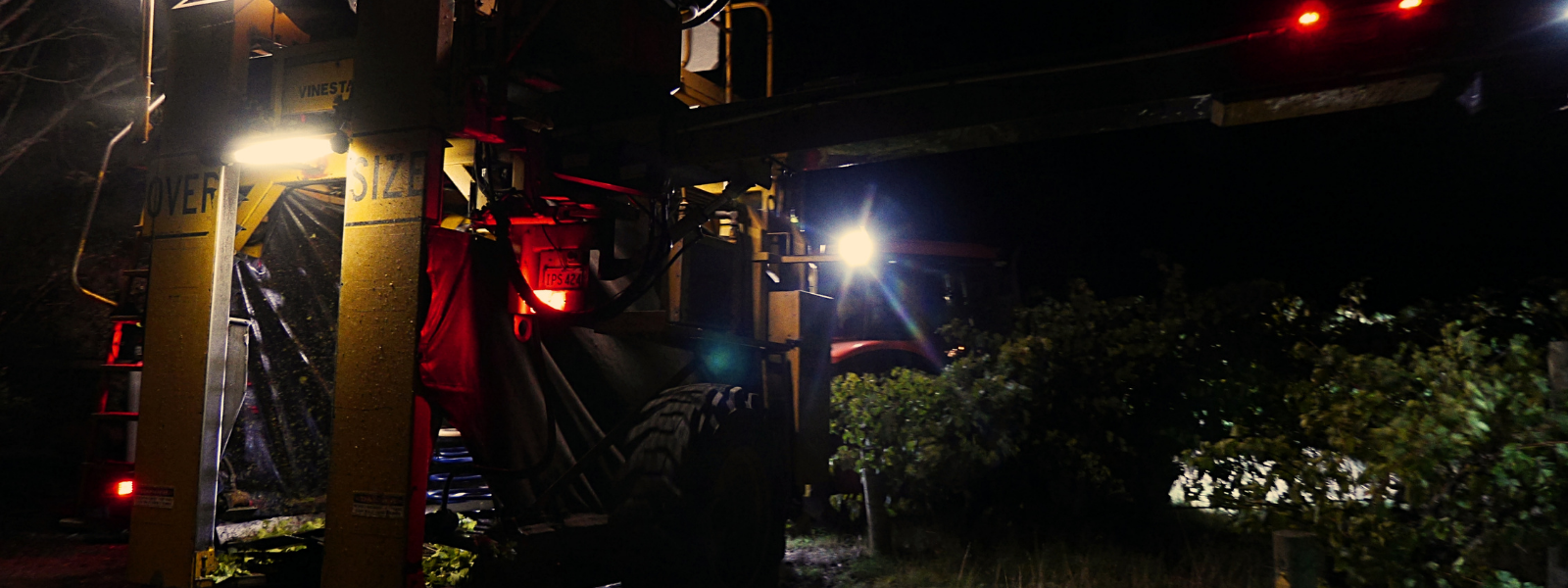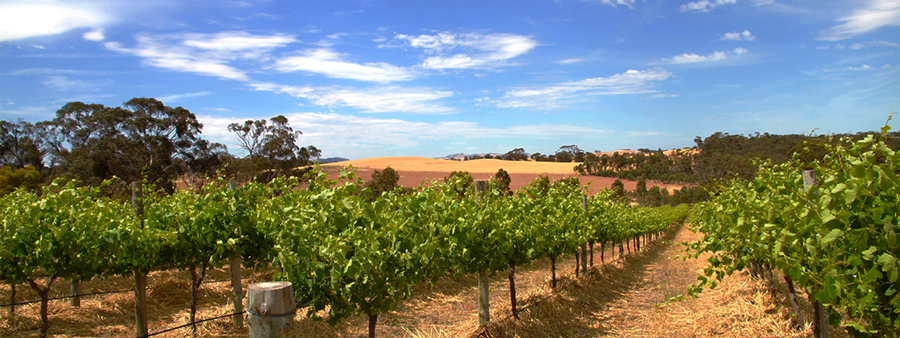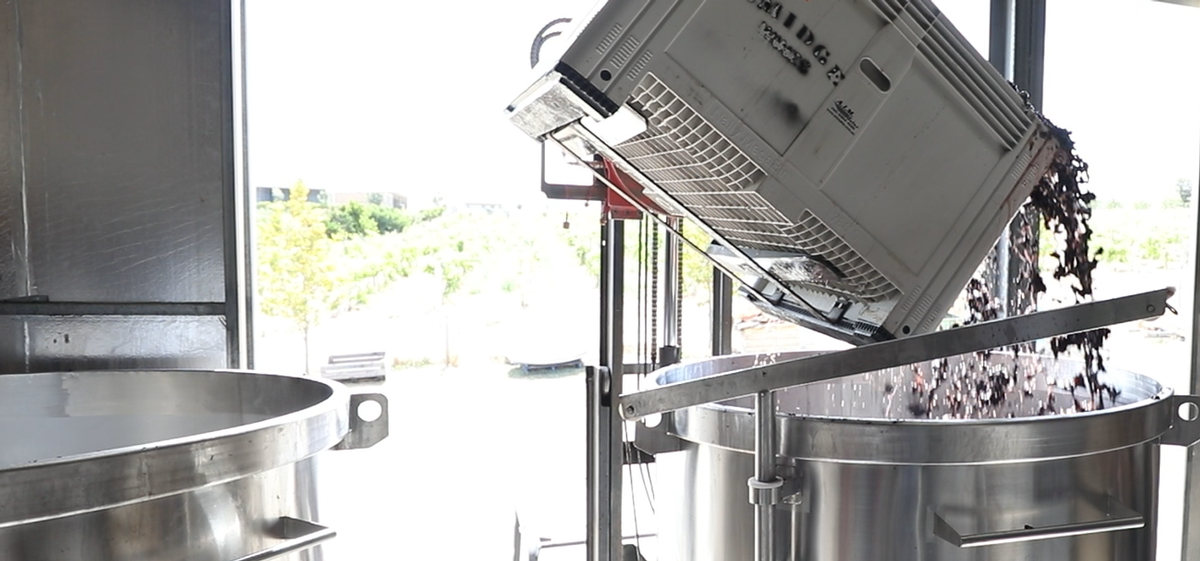Latest News From Smidge Wines
What Does a Winemaker Drink at Home?

Now that vintage has come to an end, we had the chance to chat with Winemaker Matt Wenk and ask him what he likes to drink at home - it turns out it is a curious question that he's been asked once or twice before.
To kick off, I jumped straight in and asked when he's at home does he ever drink his own wine? As always Matt was generous with his time and answer.
"This is a question I am often asked at the Cellar door, or at nearly any social situation I can think of I am almost always asked these questions. The next question I'm asked is ‘Do you ever get to enjoy wine – or is always work?’.
To start – sometimes I don’t drink wine at all! After a day of barrel trials, or tasting I’ll often have a cold beer or sparkling water – to cleanse the palate, refresh, hydrate and reset.
Then there are the nights I’ll bring home a trial blend to try with dinner, or dust off an old vintage to see how it is faring – testing closures, storage and generally how it is developing relative to my expectations of that vintage.
Equally, I love trying the efforts of someone else’s blood, sweat & tears. Both locally & internationally, I enjoy comparing vintages, varieties & styles and see how we compare. Then there are the times we’ll open a special bottle whether it is a cheeky glass of fizz or something else we’ve collected along the way – it might be for a celebration or just because.
I’m also a fan of trying anything I can get that is a little different no matter where it is from or what variety it is. It’s important to me to understand what is happening and not to restrict my frame of reference to what I make, and like to drink.
And to answer ‘is it always work?’ Absolutely not! How can drinking something delicious with good food and good friends be work? As the saying goes - If you love what you do you’ll never work a day in your life!’."
So What Exactly is Vintage?

As you expect, at this stage of the year –we talk a lot about vintage – which in some English speaking regions in the northern hemisphere (& sometimes here) is also referred to as harvest.
Some people know exactly what I am referring to, although more often than you may think, I am asked what I mean when I say ‘vintage’? The question is then often followed by – has it got something to do with the year on the bottle or is that the year the grapes were grown or the year the wine was bottled?
So for the many people who have thought about these questions, but never asked I felt it might be helpful to shed some clarity on the subject.
Firstly, the vintage (or year) on the bottle does refer to when the grapes that made the wine in the bottle are picked. When Australian winemakers are referring to vintage – generally they are referring to the sleep deprived 8 or so weeks that it takes to pick and process fruit. Larger wineries will run 24 hours a day – making sure fruit is picked and processed in a timely manner, some wineries will run 12 hour shifts, others somewhere in between – at the end of the day every winemaker has their own plan of attack!
Smaller producers, and in our case, micro wineries are often without the luxury of structured shifts or hours. As purists, we are a slave to picking at the perfect time and getting things done at the perfect time - which is most often balancing fruit readiness, the weather forecast, availability of picking crews, and a free fermenter– At any point it can all come undone in a heartbeat from availability of trucks getting fruit from vineyards to the winery, a harvester breaking down, yields not running to forecast or a grower going away for a long weekend (yes, it does happen!).
The weather forecast is one of the most important elements. Other than the obvious influence on ripeness, it is looking at timing and balancing where a vine and fruit is now, where it will go based on weather expectations. For example, what may seem counter intuitive, sometimes we will irrigate slightly before rain to stop the vines panicking and sucking up every last drop in the soil which may in turn cause berry splitting. Equally we may try and get a pick in before rain or cool weather which may push back the vine and its fruit's ripeness and balance interms of sugar and flavour.
It may seem a challenging task, but I don’t know a winemaker that doesn’t love it. And then once in a lifetime (or at least the first in mine) you get a year like 2021. The Midas of picking seasons, and ones that dreams are made of. Quality was extraordinary by any standard, coupled with even ripening across blocks that was staggered between regions, varieties and sites ensuring we had the luxury of picking exactly how and when we wanted. Here’s crossing everything for another one this year...and by all accounts, it's a pretty good start!
Here's to Vintage '22, cheers!
The Grapes Don't Care About Covid

While COVID has been an international distruptor on a scale that most people could not imagine, its impact on viticulture has been a little more nuanced. This week we sat down with Matt Wenk, Smidge founder and winemaker to get his take.
Matt begain by saying "Needless to say most people are now familiar with supply chain disruptions, and the need to find to new markets and even new ways of delivery.
Like any primary producer we are ultimately a slave to the weather, the vines keep growing, which inturn need harvesting and in time need pruning. Historically, our industry has ticked along nicely with a generous availability of local and transient workers, however COVID has been the ‘gift that keeps giving’ with another disruption to the backbone of our vineyard support.
This year we were on tenterhooks as promised start dates for pruning crews came and went on multiple occasions ( ultimately due to much lower numbers of pruners, but the same number of vines!). Fortunately, with a season starting a little later, and a well-timed barrel prune to buy us some grace, we were able to scrape in with our "2 bud spur" pruning being done in the nick of time
Equally, international placements have often been a hallmark of our vintage crew, in much the same way that I have had the privilege of working vintages around the world – it has been our way of reciprocating the opportunities – while at the same time having a splash of new energy, outlook and culture, that is always refreshing, even if not always a 100% fit . unfortunately, as an industry, it has been quite difficult securing casual employees for the 2022 vintage – While it seems early to even be thinking this…fingers crossed for 2023 [😊]"
Corkage Culture?

Corkage for "BYO wine" can be as divisive as religion and politics, so this week we’ve sat down with Smidge Winemaker & Founder Matt Wenk to get his take on something that can make or break a dining experience.
Unexpectedly, Matt started by chatting about the contribution a particular wine can make to enhance a food experience, in much the same way good company does. Sometimes it can help create the perfect food and wine match, and other times it can be a wine that has been carefully stored for years for a celebration or happy memory that will just make a night out special. So it is important not to dismiss any wine at any time and appropriate corkage culture is important to achieve this. He said it is critical for all parties to do their bit. “The margin a restaurant makes on a bottle of wine helps cover glassware, cleaning, breakages, service and in many cases maybe most of or even the only profit a restaurant will make on a cover – so in my own mind it is not just reasonable, but critical for an establishment to charge a balanced level of corkage to help ensure they are around to serve good food for another day”. During COVID and subsequent reduced occupancy this is even more important.
Independent on the specific restaurant charges, Matt has listed his top tips to drive success
1) Ring in advance especially if you are taking more than one botte– sometimes restaurants will prefer wines to be dropped off in advance, equally this is a good opportunity to find-out any charges to ensure there are no surprises on the night
2) Don’t bring wines that are already on a restaurant's wine list or readily available at liquor outlets
3) Be sure you buy a drink or two off the establishment's list, a pre or post dinner tipple purchased is always appreciated
4) If it’s a very special bottle or something fairly rare, it can be a nice touch to invite the sommelier to enjoy a taste too!

Why are Smidge Wines Vegan? - It might not be what you think

Every winemaker endeavours to produce the best wines they can and picking fruit at the optimal time makes life in the winery easier with flavours and structure regularly falling into place. Sometimes things may not be completely perfect and fining agents to remove "background noise" (things that may subdue aromas or are bitter on the palate) become useful tools in achieving this goal. The "one percenters" are crucial and short cuts should never be entertained, although efficiency should not be ignored either.
In the formative years of my career in the 1990's, I trialed many fining agents and found that several of the proteinaceous fining agents required long winded and often messy preparation before use. With several steps in the preparation process, there was more chance of human error occurring, especially if different personnel were involved, leading to possible inconsistencies between batches affecting results. This group of fining agents include products such as egg whites, isinglass, milk and milk derived products. Although their results were good, due to the aforementioned potential inconsistencies and sometimes messy preparation, I sought an alternative. Although rarely required, if there is a need, I now use a non-proteinaceous agent that is non-soluble, synthetic with a high molecular weight.
This product requires little preparation, is easy to use, settles quickly and has a broad spectrum of uses. Although subjective (as with many things in the wine industry), I found the results were equal to and regularly better than its proteinaceous counterparts. Therefore, when required, I have used this product ever since. In saying that, I am led to believe some of the newer proteinaceous products on the market are easier to use than their older counterparts, but use of these products would not allow me to call my wines 'vegan friendly'. - Matt Wenk.
- Matt Wenk